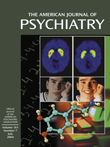Abstract
OBJECTIVE: Behavioral and social impairments have been frequently reported after damage to the prefrontal cortex in humans. This study evaluated social perception in patients with prefrontal cortex lesions and compared their performance on a social perception task with that of healthy volunteers. METHOD: Thirty-three patients with prefrontal cortex lesions and 31 healthy volunteers were tested with the Interpersonal Perception Task. In this task, subjects viewed videotaped social interactions and relied primarily on nonverbal cues to make interpersonal judgments, such as determining the degree of intimacy between two persons depicted in the videotaped scene. Patients with prefrontal cortex lesions were classified according to lesion involvement of specific regions, including the orbitofrontal cortex, dorsolateral prefrontal cortex, and anterior cingulate cortex. RESULTS: Relative to the comparison subjects, patients whose lesions involved the orbitofrontal cortex demonstrated impaired social perception. Contrary to predictions, patients with lesions in the dorsolateral prefrontal cortex also showed deficits in using social cues to make interpersonal judgments. All patients, particularly those with lesions in the dorsolateral prefrontal cortex, showed poorer insight into their deficits, relative to healthy volunteers. CONCLUSIONS: These findings of deficits in social perception after damage to the orbitofrontal cortex extend previous clinical and experimental evidence of damage-related impairment in other aspects of social cognition, such as the ability to accurately evaluate emotional facial expressions. In addition, the results suggest that the dorsolateral prefrontal cortex is recruited when inferences about social interactions are made on the basis of nonverbal information.



